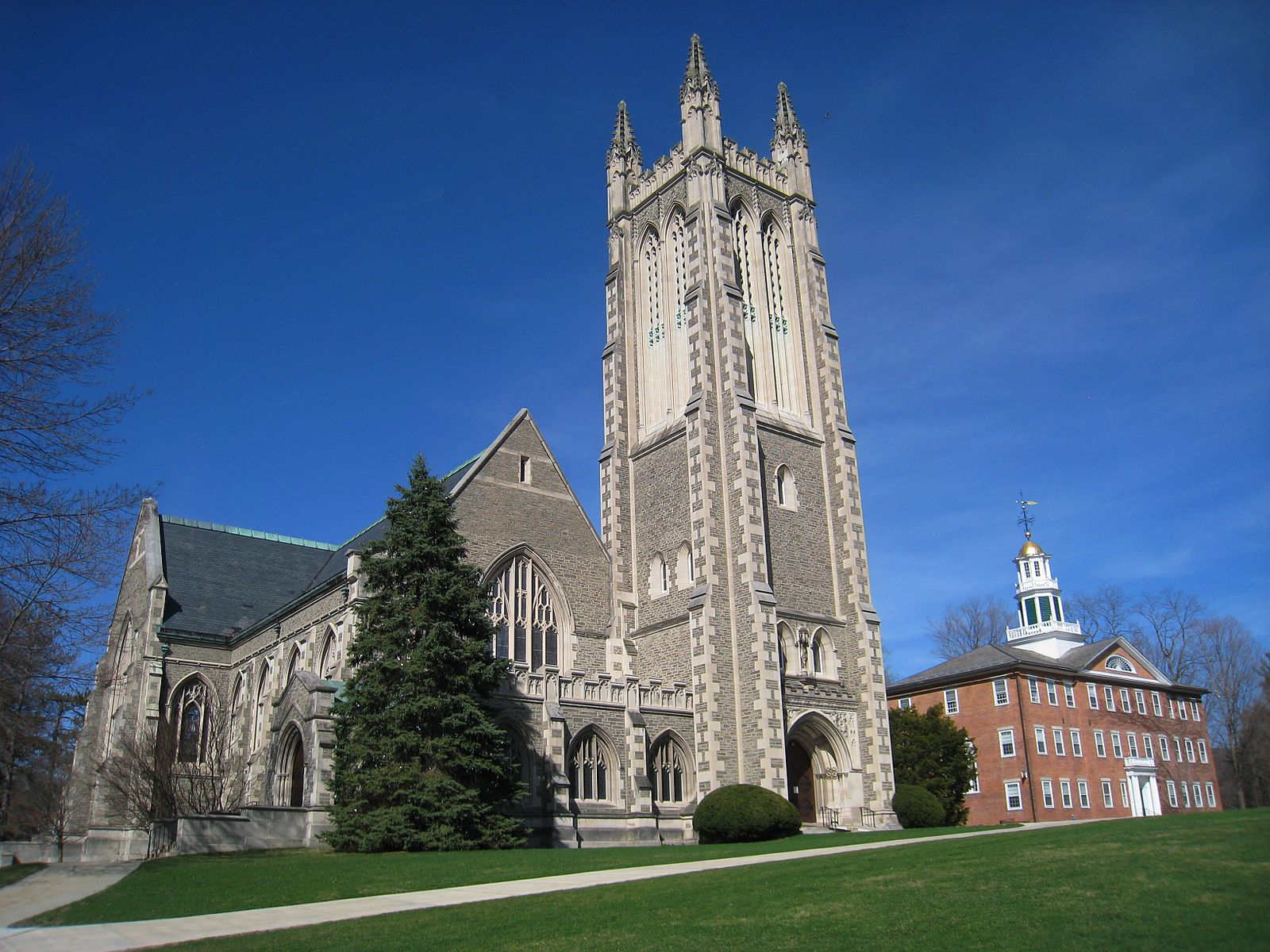 Photo from Wikimedia Commons.
Photo from Wikimedia Commons. A pro-Israel student group at Williams College, the private liberal arts college in Williamstown, MA, will not be recognized as a student club on campus.
In an April 23 meeting, the Williams College Council voted 13-8 with one abstention against the Williams Initiative for Israel (WIFI), denying the group the required Registered Student Organization (RSO).
According to the college’s website, student groups are “not allowed to meet under the College name or receive/use College funding or resources” until they receive RSO status.
Molly Berenbaum, one of WIFI’s leaders, said during the meeting that the group is apolitical and focuses on celebrating Israel’s existence. Other students at the meeting criticized the club for not taking a stance on “the occupation or human rights abuses against Palestinians.”
Students Joseph Moore and Jesus Payan, wrote in an Op-ed on Thursday in the student newspaper the Williams Record, that while they “fully support a Jewish home in the region,” they can’t support “the currently existing Israeli state. Given that the Israeli state is engaging in ongoing violent practices and is built on stolen Palestinian land, one cannot ‘support’ the existence of an Israeli state as an abstract concept without ignoring and indirectly endorsing the state’s violent practices,” Moore and Payan wrote.
Members of WIFI argued that the Israeli government is not engaging in genocide against the Palestinians and that Israeli settlements don’t constitute “settler colonialism.”
Moore and Payan wrote that “Williams ought not to provide a platform to groups that, when provided with first-hand testimony from Palestinian students about the violence of the occupation, attempt to redefine terms like genocide and colonialism to suit their own ends.”
They also stated that a pro-Israel group wasn’t necessary on campus because “the pro-Israel lobby in the United States is both extremely well funded and politically influential. Thus, both practically and discursively, the state of Israel does not need a student group defending its ‘right to exist’ on this campus any more than we need to ‘defend’ the rights of wealthy, straight white men.”
WIFI members Berenbaum, Gavin Small and Maxwell Plonsker wrote in a separate Williams Record op-ed Thursday that WIFI only aims “to bring an additional perspective into the ongoing campus discourse on [the Israel-Palestinian] issue for students who support or who want to learn more about Israel. To be clear, we celebrate the fact that groups such as Students for Justice in Palestine have been granted RSO status, and that students who believe in that group’s mission have been given a platform to support their cause. WIFI is requesting only that students with a different perspective be given that same platform and opportunity to be heard.”
They added that WIFI meets the council’s criteria for recognition, yet the council did not explain why WIFI was denied recognition and contended that the council’s decision to deny WIFI recognition was “purely political.”
Rabbi Abraham Cooper, Simon Wiesenthal Center associate dean and director of the Simon Wiesenthal Center’s Global Action Agenda, said in a statement to the Journal that the council’s decision was “anti-Semitism on full display at Williams College. Apparently [there’s] no room for lovers of Zion and Israel among the bigots who control the vote. Where are the adults in the room?”
Yael Lerman, director of StandWithUs’ Saidoff Legal Department said in a statement, “Provided that the reports are accurate, this seems like a blatant attempt to silence students because of their political position and their Jewish and/or Israeli identities. It is also unclear whether Williams College followed its own policies and protocols for granting RSO status, considering that WIFI fulfilled all the requirements properly. We urge the administration to investigate exactly how this happened, promptly reverse the decision, and take steps to ensure something like this never happens again.”
Williams College President Maud Mandel said in a statement Friday she was “disappointed” that the council refused to recognize WIFI on “political grounds. In doing so, Council departed from its own process for reviewing student groups, which at no point identifies a proposed group’s politics as a criterion for review.”
Mandel added that WIFI could “exist and operate” on campus despite the council’s decision.
Spokespeople for the council did not respond to the Journal’s request for comment.























 More news and opinions than at a Shabbat dinner, right in your inbox.
More news and opinions than at a Shabbat dinner, right in your inbox.